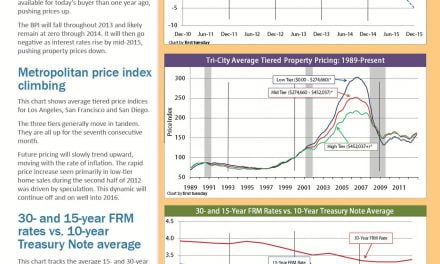The profit taken on the sale of real estate is exempt from income tax if the real estate sold and the real estate purchased in replacement qualify for an Internal Revenue Code (IRC) §1031 like-kind transaction. However, the sale of one property and purchase of a replacement property rarely occur naturally at the exact same time, nor need they. Thus, a cooperation provision is needed to implement the long-standing 50 year old general rules for avoidance of receipt when the investor is not yet ready to concurrently close his purchase escrow for acquisition of replacement property with the close of his sales escrow. [See first tuesday Form 159 §10.6]
Under the classic general rules for avoidance of the actual and constructive receipt of the funds, the investor temporarily diverts the net sales proceeds to a §1031 trustee who will hold the funds (on behalf of the buyer) in an interest-bearing trust account for the benefit of the investor. [See first tuesday Form 150 §10.6]
However, when cooperation and the use of the §1031 trustee are denied by the buyer of the investor’s property, the investor uses the artificial safe harbor rules as a “last ditch” alternative to avoid (or is it evade?) reporting the gain. Under the safe harbor rules, title, in addition to funds, is passed through a strawman, misleading called a qualified intermediary (QI).
But now when the QI for a transaction mismanages his funding obligations and defaults on producing the net sales proceeds or further conveying the replacement property to the investor – which happens all too often at the end of a real estate boom – the Internal Revenue Service (IRS) provides tax relief for investors. Under the new rules, the investor in a §1031 transaction that fails due to the QI entering bankruptcy or receivership may report the gain, which is now taxable, in the tax year the funds are eventually, in whole or in part, received by the investor.
first tuesday take: The IRS has implicitly taken “qualified” out of “qualified intermediary” by essentially acknowledging the existence of thievery. “Qualified,” as it is used in this §1031 context, is an obvious misnomer. As for California, no government agency has been authorized to provide oversight or enforce legislation covering the conduct, bonding, etc., of QIs. Thus, there are no police (except for the investor and his broker) to compel anyone active as a QI to abide by these laws or enforce them if broken. This toothless tiger condition must be rectified in the legislature by granting the California Attorney General the authority to oversee and regulate QIs by some form of registration. [For more information reviewing the new California laws which regulate §1031 QIs, see the March 2009 first tuesday Legislative Watch.]
The IRS relief provided to investors who themselves should not have given their money to an absolute stranger is questionable. In truth, an investor selling §1031 property never needs to hand his sales proceeds or deed property to a stranger – and his broker should know better – when the buyer has agreed in a purchase agreement to cooperate with the investor in documenting a §1031 reinvestment. The only §1031 situation where an investor acquires title to replacement property via another person, individual or entity, to hold title as an interim owner is in a reverse §1031 transaction by way of the conventional use of an unrelated person, known personally to the investor. [Biggs v. Commissioner (5th Cir. 1980) 632 F2d 1171]
Despite the excessive fees and the risk of losing all their funds in unnecessarily and improperly structured delayed §1031 schemes, many uninformed or misinformed investors (and their brokers) still use QIs and follow the artificial strawman safe harbor rules designed solely for buyer refusal to cooperate. Thus, investors still continue to double deed their property and relinquish their sales proceeds to QIs in the mistaken belief that they must do so to qualify their reinvestment for the §1031 exemption. Attorneys have made themselves part of the problem. However, the risk of losing property or funds to a corrupt QI can easily be eliminated by use of the general rule for avoidance of receipt. [See first tuesday Forms 172-2, 173-2, 173-4 and 174]
What is first tuesday’s pragmatic advice? Don’t give your money to an unbonded stranger to hold. Instead, persons an investor should consider using as the §1031 trustee to avoid receipt of the net proceeds from the sale of §1031 property include:
- a federally-insured depository, such as a bank or thrift (this excludes title insurance companies as they are unbonded and uninsured); or
- a trustworthy individual of long-time acquaintance known personally and by reputation to the investor, who is not a family member or a controlled business entity of the investor. [IRC §267(b); Rev. Regs. §1.1031(k)-1(k)]
Re: “Deferred Like-Kind Exchange Safe Harbor Provided Where QI Defaults on Obligations (Rev. Proc. 2010-14)” from CCH














Your qualified intermediary should know the rules of the exchange also.